To celebrate the twenty-fifth anniversary of Star Trek: The Next Generation, and also next year’s release of Star Trek: Into Darkness, I’m taking a look at the recent blu ray release of the first season (and a tiny bit of the second), episode-by-episode. Check back daily for the latest review.
At the very least, Loud as a Whisper has its heart in the right place. At least of most of its run time. Essentially an issue-driven (and guest-star-driven) show that is determined to prove to the audience that a disability need not define a person, it’s a little undermined by a subplot where Pulaski and Geordi discuss the possibility of making the Chief Engineer “normal” again. However, once you get past the earnestness of it all, Loud of a Whisper seems a little clunky as television drama, with all manner of potentially interesting ideas that are never really explored. The result is a massively disappointing story that feels a bit like a clumsy after-school special.
To be fair, the idea for the show was actually proposed to the producers by the guest star, during the Writers’ Guild of America Strike of 1988. According to The Next Generation Companion:
Howie Seago, who is actually deaf, met with the producers during the writers’ strike to suggest a show built around a deaf actor as a guest star. This episode is the result, and in it Seago helped to change what he felt was a dangerous myth regarding deaf people: the first draft’s premise had his character learning to speak overnight after the failure of a mechanical translator he used to communicate with his chorus. The day before shooting he suggested an alternative scenario, where after the killing of his chorus Riva stays on Solais V to teach the combatants sign language. To his surprise the idea was eagerly accepted; the supportive mail from both deaf and hearing people seemed to bear out the wisdom of that idea.
We can all agree that the ending Seago suggested is at least superior to the one proposed in the script. After all, there’s something quite sinister about the idea that you can “fix” a disability like that. Unfortunately, the scene between Geordi and Pulaski that remains in the finished episode contains the same connotations.
It is possible for Star Trek to do great issue-driven storylines. For example, Symbiosis was one of the better episodes of the first season. Classic episodes like The Outcast and Rejoined would tackle homosexuality in clever ways. However, these episodes also have a tendency to take themselves too seriously, to rather clumsily manhandle the issue at hand, and to forget that a television series like this must first tell a story – and the way to explore these issues is through the story, rather than trying to awkwardly graft a story on to an issue.
Perhaps the most fascinating aspect of the episode is Riva’s chorus, which is killed off about half-way through in order to generate drama and suspense, forcing our character to start from scratch. The chorus is, on a purely visual level, a fascinating concept. However, it raises all manner of logical questions. It seems appropriate that this show focuses around Troi, as a lot of the issues raised by the chorus apply to her as well.
We’re told that each of the three members of the chorus speaks to one side of Riva’s emotional spectrum. “We serve as translators,” one explains. “We convey not only his thoughts, but his emotional intent as well. I am the Scholar. I represent the intellect, and speak in matters of judgement, philosophy, logic. Also, I am the dreamer, the part that longs to see the beauty beyond the truth which is always the first duty of art.” Another observes, “I am passion, the libido. I am the anarchy of lust, the romantic and the lover. I am also the warrior, the perfect line which never wavers.” Finally, the third states, “I am that which binds all the others together. I am harmony, wisdom, balance.”
It seems a bit arbitrary that Riva’s emotional spectrum can be conveniently divided into three sections. It seems a bit reductive. I would imagine that emotions are somewhat broader and deeper than that. Still, Riva seems to place great emphasis on using these three voices to communicate with his audience. After they are killed, he dismisses Data’s ability to fill the void. “When Data speaks for me, can you hear my anguish, my despair?” he asks. “Data is a fine machine, but he cannot take the place of my chorus. It took years to develop a communication. That cannot be easily replaced.”
Here’s the thing, though. It seems a bit arbitrary that all the worlds in all the universe have the same emotional capacity as we do, and that emotions translate on a one-for-one basis across the galaxy. I know the chorus represent Riva’s emotional range, but he seems to emphasise how important that is to the people he addresses as well. It’s a bit of a problem I have always had with Troi – the idea that emotions can somehow be mapped on a one-for-one basis, particularly across cultures. It seems to reflect a human-centric view of the universe, with the idea that all species must rigidly adhere to our perception of the universe.
Of course, a later episode in the series, The Chase, would seem to explain why the Star Trek universe was populated with so many bipedal human-like aliens, and perhaps the same explanation accounts for how emotions tend to map the same across countless different species that evolved light-years apart. I can understand how that would make sense, but I’m still a little uncomfortable with the idea that there’s very few forces out there so alien that they don’t feel exactly the same way that we do.
That said, if they didn’t, then we wouldn’t need Troi as the ship’s empath. Since Guinan seems to have quickly become the ship’s de facto counsellor (helping Wesley decide what he wants in The Child and helping Data investigate humour in The Outrageous Okona), it would seem a bit harsh to take that away from Troi. She seems to have unfortunately little to do on the show at this point in its run, so I suppose we should be thankful that she can still state the blindingly obvious for the bridge crew.
This idea that everything must conform to humanity’s ideals and expectations is actually raised in the opening scene, and I’m a bit disappointed that the episode never really addressed it. Worf seems hesitant to welcome Riva on board. Picard explains, “Ah. Riva negotiated several treaties between the Klingons and the Federation.” Worf replies, “Before him, there was no Klingon word for peacemaker.”
This seems to reflect what we saw in Heart of Glory, where human values couldn’t necessarily be applied to the Klingon Empire. We’re told that this cultural assimilation “bothers” Worf, and it’s great that nobody takes the opportunity to lecture him on the virtues of peace. The application of human ideal to the Klingon Empire was arguably one of the factors that contributed to its decay and corruption, proof that you can’t just apply human value systems across the board.
Unfortunately, this seems to be the one concession the episode makes, and we’re quite clearly back in “human superiority” mode. Picard hovers the Enterprise over Solias V and notes in his log, “We are monitoring increased military activity on Solais Five. I fear that without Riva, we will be unable to keep the Solari from destroying themselves.” It seems creepily paternalistic. It doesn’t have to be, but the script makes it seem like the inhabitants should be kissing the feet of the Enterprise crew.
Before I move away from the chorus as a concept, the script itself has some clunkiness. I feel a little uncomfortable about the fact that the script identifies the two male members of the chorus by their roles and archetypes, but has to label the woman as “woman.” How come the men aren’t similarly classified according to the script?
There are three of them… each a distinctive personality and physical archetype — the SCHOLAR/ARTIST, the WARRIOR/ADONIS, a CULTURED WOMAN.
I’ve written before that The Next Generation has some serious gender issues, and this seems like another example. Also, how come every Troi-centric episode so far (and quite a few to come) are based around the guest star of the week trying to get into her skin-tight jumpsuit? I mean none of the male cast are so consistently objectified in such a manner in their own stories.
Finally, apropos of nothing, I do find it a little hilariously awkward how Riva’s libido works, and how incredibly awkward and transparent it is. When he wanders off with Troi, he leaves “Scholar/Artist” and “Cultured Woman” behind, prompting them to rather awkwardly ask to be shown to their quarters. They seem to stop short of saying they’ll have a few hours off. “At times like this,” one states, “we become an encumbrance.” Man, I hate it when two out of three of my emotional chorus tend to ruin my dates.
There is also, unfortunately, the rather awkward way that Riva’s disability is portrayed as inherently alien. I know that the gender issues of The Outcast and Rejoined aren’t exact parallels for issues of modern sexuality, but Riva is deaf and dumb – and the episode stresses that these are pretty much the exact same disabilities that we see everyday. As such, treating Riva’s inability to hear or speak as something exotic and alien seems to undermine the point a bit.
I’ve always felt that Geordi was the best way to handle that sort of issue in Star Trek. His blindness isn’t a secret – he isn’t treated as if he’s a character who can see, but with a funny comb on his face. Geordi is portrayed as different than the crew around him, and that difference stems from his inability to see. His blindness isn’t treated as something that makes him less capable than those around him, just something that means he perceives the world in a different way. The opening section of Heart of Glory might have seemed like clumsy padding, but it at least illustrated that Geordi comprehends the universe in a manner distinct from the rest of us.
So the episode is somewhat undermined by a scene between Pulaski and Geordi where she discusses “fixing” him using the magic technology of the replicators. Of course, the scene doesn’t use the word “fix”, but it uses words like “normal.” During a routine check-up, Pulaski reveals it is possible for Geordi to see again. “I can attempt to regenerate your optic nerve, and, with the help of the replicator, fashion normal eyes. You would see like everyone else.”
This is where the show runs into problems. That’s a fairly massive decision to put in front of anybody. It’s a massive and important character subplot for Geordi as a character. However, it’s all clumsily crammed into one short scene. She asks Geordi, “Why are you hesitating?” He replies, “Well, when I came to see you, it was to talk about modifying this. And now you’re saying it could be possible for me to have normal vision?”
There’s no discussion of what “normal” means or what “like everyone else” is truly about. After all, much like the emotional spectrum above, it suggests that the human perception of the universe is an absolute rather than a subjective interpretation. At its worst, it seems to imply that Geordi has a problem that should be rectified so he can conform to human standards, that somehow seeing the universe as most humans do is the very pinnacle of perception.
The scene was apparently written to provide actor LeVar Burton with the possibility of removing the VISOR and allowing the actor to emote with his eyes. I can understand the appeal of that proposal to a performer, but I also think that it would diminish the character in a very significant way. It was, at the time (and it still is), very rare to see people on television living with disabilities in a manner that doesn’t sensationalise or exploit. Geordi was blind, but that didn’t define him.
Geordi was a blind character whose characterisation didn’t really rely on that disability at all. It was just part of who he was, and it didn’t limit or restrict him in any way. He was surrounded by characters who respected and trusted him, and his inability to see didn’t reduce him in their eyes in any way shape or form – it didn’t limit his ability to contribute. I can’t help but feel like giving him “normal” eyes would send the wrong message to those watching and enjoying the series.
The scene was never touched on again, making it stand out even more than it does as part of the episode itself. You’d imagine that Geordi would have to digest and think about the proposal, and that it would weigh heavily on him. Instead, it is never mentioned ever again, which makes this feel like an especially surreal diversion. And positioning it in a story about another character coping with their disability makes it feel even more misjudged.
Finally, there’s Troi. It’s clear at this point in The Next Generation that the writers are trying to figure out what she is supposed to be doing. You’d imagine that the departure of the other two female leads might have inspired the producers and writers to do something dynamic or interesting in the character. Instead, we get this episode in which she is clumsily inserted into the story of a guest character, all so the episode can end with Picard bluntly telling the audience what a great character she is.
“You read me well enough to sense how I feel about you and what you do on this ship,” he states. “But I just wanted to say the words. Thank you. Well done.” It’s hardly the most subtle way of trying to convince the audience that Troi is a valued member of the crew, and it hardly seems earned. I mean, Wesley’s advice to Okona averted a potential war last episode, and he didn’t get a nice little speech – and he doesn’t even have the advantage of being able to read Picard’s thoughts. Ah well. How far way is Face of the Enemy?
The Next Generation could do great issue-driven storytelling. Unfortunately, it could also bungle the concept completely. Unfortunately, As Loud as a Whisper feels more like the latter than the former.
Read our reviews of the second season of Star Trek: The Next Generation:
- The Child
- Supplemental: Phase II (1978) – The Child
- Where Silence Has Lease
- Elementary, Dear Data
- Supplemental: Embrace the Wolf
- The Outrageous Okona
- Loud as a Whisper
- The Schizoid Man
- Unnatural Selection
- Supplemental: Deep Space Nine (Marvel Comics) #3-4 – The Cancer Within
- A Matter of Honour
- The Measure of a Man
- Supplemental: Myriad Universes – Echoes and Refractions: Brave New World by Chris Roberson
- Supplemental: The Measure of a Man (Extended Cut)
- The Dauphin
- Supplemental: Masks by John Vornholt
- Contagion
- The Royale
- Time Squared
- The Icarus Factor
- Supplemental: The Lost Era – Deny Thy Father by Jeff Mariotte
- Supplemental: (DC Comics) Annual #2 – Thin Ice
- Pen Pals
- Q Who?
- Samaritan Snare
- Up the Long Ladder
- Manhunt
- The Emissary
- Peak Performance
- Shades of Grey
Filed under: The Next Generation | Tagged: Data, Federation, Heart of Glory, Howie Seago, jean-luc picard, Klingon, Outrageous Okona, Sign language, Star Trek Next Generation, star trek: the original series, StarTrek, Troi, William Riker, Worf |















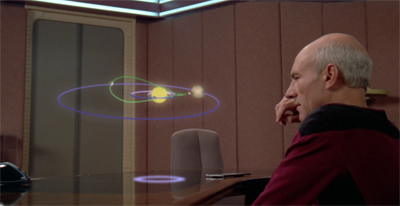




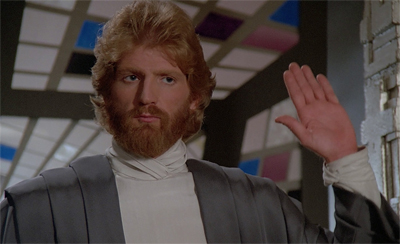
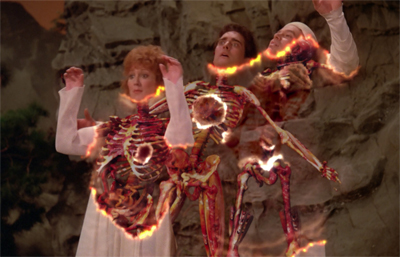

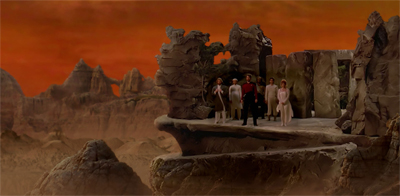
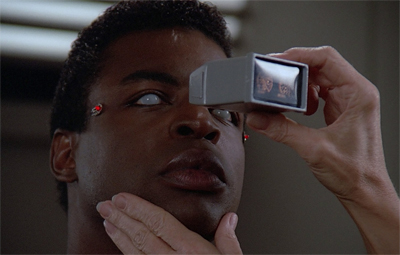








Reblogged this on cienciayconcienciaccd.
I’m sorry but the entire concept of one of Riva’s chorus’ standing in as his talking libido just makes me think of Anastasia Steel’s ”inner goddess” or Harry Potter’s ”chest monster”.
Ha!